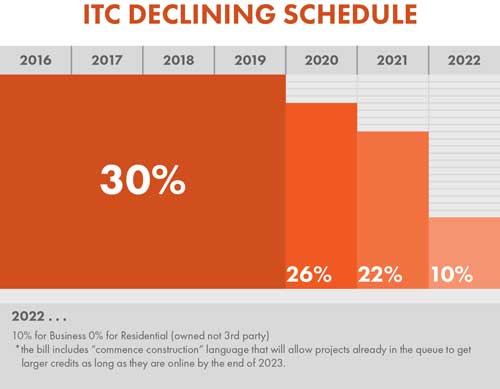The Biden administrations’ $2tn infrastructure investment plan also called the “American Jobs Plan“, is geared towards tackling climate change by supporting clean energy, electric vehicles and building homes resilient to climate threats.
The plan includes support for solar in the form of a proposed 10-year extension and phase-down of an expanded direct-pay investment tax credit (ITC) and production tax credit for clean energy generation and storage.
The current ITC is a 26 percent tax credit for solar systems. It was in the process of being phased down when Congress passed a two-year delay in 2020.

In the U.S., both homeowners and businesses qualify for a federal tax credit equal to 26 percent of the cost of their solar panel system minus any cash rebates. The timeline for the eventual end of the ITC is in 2022.
Biden’s plan proposes to extend it ten years, providing a strong long-term signal to the solar industry.
According to the Solar Energy Industries Association (SEIA), the solar ITC has helped the industry grow by more than 10,000% percent since it was implemented in 2006, with an average annual growth of 50% over the last decade alone.
In a statement, SEIA chief executive Abigail Ross Hopper described the plan as a “significant step in meeting our collective clean energy goals”.
“The plan has a clear focus on domestic manufacturing, good jobs for all Americans and clean energy woven throughout. SEIA has offered proposals consistent with this plan that will help the economy build back better. Our industry stands ready to add hundreds of billions of dollars in investment and hundreds of thousands of jobs in all American communities,” she said.
Announcing the plan with a speech in Pittsburgh—that emphasized a focus on creating jobs, Biden said it would be “a once-in-a-generation investment in America unlike anything seen or done since the interstate highway system was built.













Comments